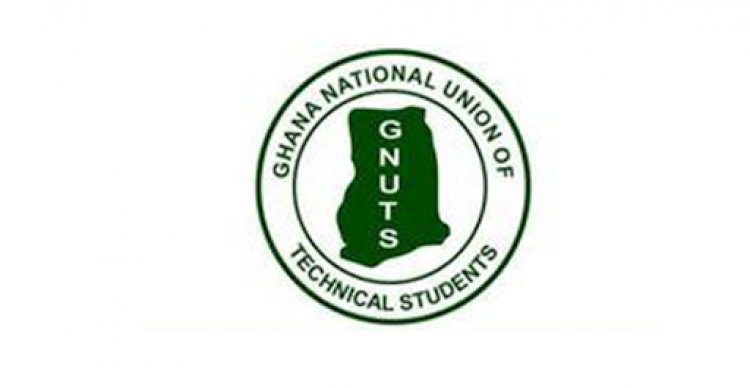GNUTS Calls On The Government To Reconsider Its Stand On Proposed Electronic Levy Due To Effect On Students
Ghana National Union of Technical Students (GNUTS) is much aware that, taxation is good for the physical consolidation of our economy but the government should rather find proper means of getting the informal sector to pay direct tax on their income rather than forcing the formal sector to pay double tax.

The leadership of the Technical and Vocational Students body expresses its dismay on the proposed electronic levy in the 2022 Budget statement presented to Parliament by the Honorable Finance Minister on 17th November 2021.
With reference to pages 73 and 74 of the budget, the introduction of the Electronic Levy covers; mobile money payments, bank transfers, merchant payments, and inward remittances. Ghanaian students are mostly from less privileged or low-income homes, as the country itself is generally classified as a low-income country.
In a press statement signed by the Co-ordinating Secretary, Abubakari Abdul Karim, Government must therefore recognize that the proposed levy charges would pose a significant financial burden to students across the country since students receive money from guardians through electronic means mostly.
One likely adverse effect this situation would bring is the lethargy on the part of guardians and sponsors to send their wards' money through electronic means.
However, E-transaction is the most convenient means of sending or receiving money over long distances, many students would stand to suffer from the self-imposed freeze in transactions.
Although despite E-levy, some guardians and sponsors might resolve to send their wards' money through electronic means, since that is the most convenient way.
“We should note that this would invariably eat into the pool of funds of these students thereby affecting the quality of life on campus. It is worth mentioning that all the financial burden of education is borne by students or their guardians or both,” it stated.
The imposition of E-levy would add to the many troubles already facing students when we should be working to be alleviating them.
“For instance, students purchase learning materials via electronic payment but when this policy is implemented, students would have to contend with the increasing cost of learning materials”, it added.
Jamal Abdul Nasar - Research and Education Officer | Mohammed Musah Koasi - Treasurer | Bossoh Foster - Public Relations Officer Clara Akanaasa - Women's Commissioner
Accra Technical University / Bolgatanga Technical University / Cape Coast Technical University / Ho Technical University / Kumasi Technical University
Koforiduah Technical University /Takoradi Technical University/Tamale Technical University / Sunyani Technical University/Wa Technical University
Furthermore, students have adopted electronic means for payments of school fees from their comfort zone instead of queuing up in banking halls.
E-Levy will directly increase the cost of school foes when paid via electronic mediums.
It would be recalled that already there has been a 15% increase in government services fees, which means the cost of accessing education in the country has been reviewed upward.
Again, guardians would send monies out of their net income i.e., income after tax, which means their incomes have already been taxed and it will be unfair and at the same time amount to double taxation for their monies to be taxed when sending some to their wards, which is not intended to expropriate profit but rather help their wards fare well whiles in School.
Ghana National Union of Technical Students (GNUTS) is much aware that, taxation is good for the physical consolidation of our economy but the government should rather find proper means of getting the informal sector to pay direct tax on their income rather than forcing the formal sector to pay double tax.
GNUTS as the mouthpiece of all technical students in the country, recommends the following:
1. Government should reconsider its decision on the electronic levy by listening to the ordinary citizens, while also considering the effects it will have on students and the people from the rural communities of Ghana.
2. Government should expand its arms for broader consultation before seeking parliamentary approval on the electronic levy.
3. Government should avoid tax exemptions for private companies operating in Ghana
4. Government should draw lessons from other countries most especially African and developing countries on the impact and feasibility of E-levy on the economy.
5. Government should make tax target-specific so that it does not overburden people who are already meeting their tax obligations.
6. Government implements proper management and accountability on all-natural resources (gold, bauxite, diamond, manganese, crude oil, silver, salt, iron, steel, green Forest, etc.) to help generate revenue for the country.

 Boakyewaa Lawrencia
Boakyewaa Lawrencia 



































